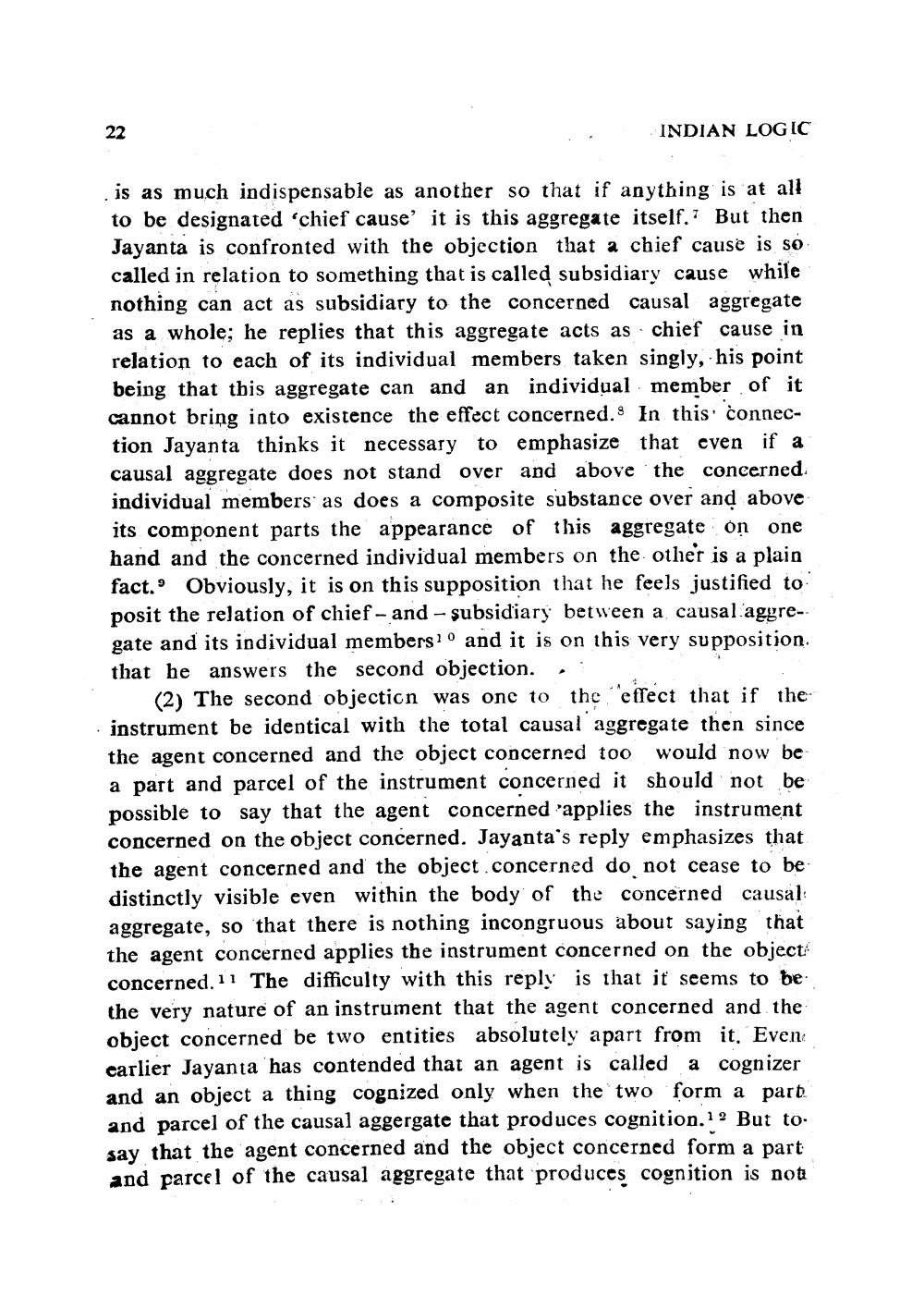________________
INDIAN LOGIC
is as much indispensable as another so that if anything is at all to be designated 'chief cause it is this aggregate itself.' But then Jayanta is confronted with the objection that a chief cause is so called in relation to something that is called subsidiary cause while nothing can act as subsidiary to the concerned causal aggregate as a whole; he replies that this aggregate acts as chief cause in relation to each of its individual members taken singly, his point being that this aggregate can and an individual member of it cannot bring into existence the effect concerned. In this connection Jayanta thinks it necessary to emphasize that even if a causal aggregate does not stand over and above the concerned. individual members' as does a composite substance over and above its component parts the appearance of this aggregate on one hand and the concerned individual members on the other is a plain fact. Obviously, it is on this supposition that he feels justified to posit the relation of chief - and - subsidiary between a causal'aggregate and its individual members?o and it is on this very supposition. that he answers the second objection..!
(2) The second objection was one to the effect that if the instrument be identical with the total causal aggregate then since the agent concerned and the object concerned too would now be a part and parcel of the instrument concerned it should not be possible to say that the agent concerned 'applies the instrument concerned on the object concerned. Jayanta's reply emphasizes that the agent concerned and the object concerned do not cease to be distinctly visible even within the body of the concerned causal aggregate, so that there is nothing incongruous about saying that the agent concerned applies the instrument concerned on the object concerned. 11 The difficulty with this reply is that it seems to be the very nature of an instrument that the agent concerned and the object concerned be two entities absolutely apart from it. Even earlier Jayanta has contended that an agent is called a cognizer and an object a thing cognized only when the two form a part and parcel of the causal aggergate that produces cognition. 19 But to say that the agent concerned and the object concerned form a part and parcel of the causal aggregate that produces cognition is not




